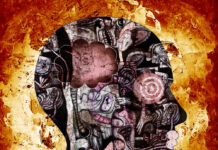From GoodTherapy.org: Although not currently listed in the DSM, the diagnosis of complex post-traumatic stress (C-PTSD) has gained widespread acceptance in the mental health community. The effects of prolonged, recurring trauma are often diagnosed as ADHD, depression, anxiety, or personality disorders; unlike C-PTSD, these labels do not address the origination of the symptoms.
“How a parent interacts with their child can have a huge impact on the child’s emotional development. If a child is not properly attuned, attended to, or acknowledged as an infant or in early childhood, a lifetime of damage may result. Generally, no visible scars or marks offer clues that anything damaging has occurred. When the person becomes an adult, they may experience serious relationship problems or struggle with addictions and other issues without understanding why. This, too, is complex trauma.
In fact, when someone has been chronically maltreated during any portion of life as a result of any type of abuse or emotional neglect, they may develop an inner propensity to manifest a variety of external symptoms. These tend to include but are not limited to ‘airheadedness,’ anxiety, somatic symptoms (migraines, stomachaches, etc.), dissociation, and depression.”















